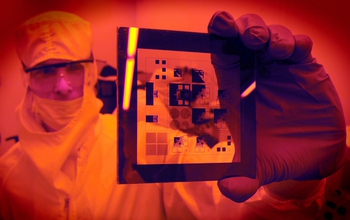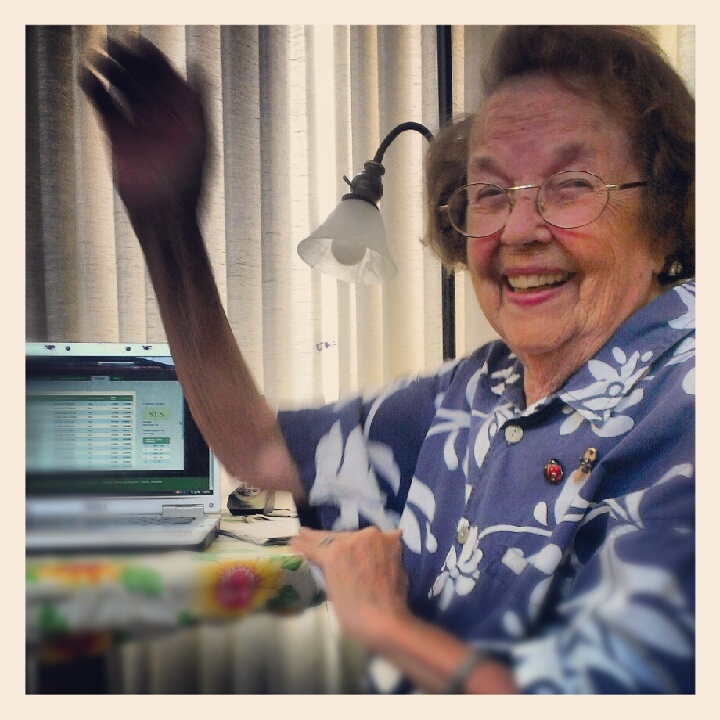Ashley Lucas (watch video) keeps thinking about a certain audience holding her new book for the very first time — incarcerated women and their families. That’s because it’s their book, too, filled with their artwork, poems and brutally honest essays about life behind prison walls.
Lucas, an assistant professor of dramatic art in UNC’s College of Arts and Sciences, is especially sensitive to the issues faced by those living behind bars and those who love them. Her father has been incarcerated since 1994.
Razor Wire Women: Prisoners, Activists, Scholars and Artists (SUNY Press, April 2011) is edited by Lucas and Jodie Lawston, an assistant professor of women’s studies at California State University San Marcos, who is also the child of a formerly incarcerated father. The collection of essays and art by contributors connected to prisons reveals the many dimensions of life behind the razor wire.
Kathy Boudin, a former member of the radical Weather Underground, who served nearly 20 years in prison for her role in a fatal armed robbery, writes in the book: “Prison doesn’t wash off like the sweat after a long work day; it stays on you; it stays in you.” Boudin was released in 2003 and today directs Columbia University’s Criminal Justice Initiative.
Lucas understands the impact of incarceration on prisoners and their families. Her father went to prison when she was 15. Having a loved one behind bars is an experience that cuts across all boundaries of class and ethnicity, gender and age, she said, adding that “it has really shaped who I am.”
“I realized when I turned 30 that he had now been in prison longer in my lifetime than he had been out,” Lucas said. Though she does not discuss publicly why her father is in prison, she does tell people who ask that he is serving time. “I often startle people without meaning to because when you ask me what my father does for a living, which is not an uncommon question, I tell the truth. And a lot of people wish I wouldn’t, because it makes people so uncomfortable. They don’t know how to respond. And I think they are particularly taken off guard by the fact that I’m not ashamed, that I still love him very much as my father. But the fact that he’s in prison is something that I constantly have to negotiate and be aware of.”
In 2004, partially to escape the isolation she felt as the child of an incarcerated parent, Lucas wrote a one-woman play based on prisoners’ experiences. She placed an ad in newspapers around the country, asking them to tell her about their lives. By the end of the first week, she had received 100 letters. Eventually, she heard from more than 400 people. Their correspondence is contained in five thick notebooks.
The resulting project was Doin’ Time: Through the Visiting Glass, which Lucas has performed both inside and outside prisons in the United States and Ireland.
“I once did a performance of the play in El Paso, Texas, and it was attended by members of a boys and girls club. This child who couldn’t have been more than 13 raised his hand and said, ‘If you replaced the word ‘prison’ with ‘foster care,’ that would be my life,’” Lucas said. “And I was really struck by how these big powerful forces in our lives take the same shapes, even if the particularities are different.”
Razor Wire Women grew out of a special issue of the National Women’s Studies Association Journal edited by Lucas and Lawston. Lucas said it was important that the book be more than just a scholarly tome.
“There’s a piece in the book by Shirley Haviland-Nakagawa in which she talks about what it was like to watch her sister’s children struggle when her sister went to prison,” Lucas said. “It means something to hear that voice. … And there are things said in imagery and poetry that are difficult to say through an academic lens.”
Lucas is among the current class of Faculty Engaged Scholars, an initiative of the Carolina Center for Public Service that rewards and supports faculty who connect their research and strengthen the University’s relationship to the community by contributing “to the common good.”
Anita Rao, a 2011 graduate from Iowa who majored in women’s studies, called Razor Wire Women “transformative” in terms of prison scholarship. Rao wrote her senior thesis on the work of the Women’s Prison Repertory Company, a now-defunct arts group based at the Raleigh Women’s Correctional Center. Lucas was her adviser.
“She was so incredibly thorough, and I felt really honored to have someone like her take my work so seriously and to put so much time and effort into being a mentor,” Rao said. “She told me, ‘If I do choose to advise someone, I really commit to giving a lot of my energy.’”
Lucas tells a haunting story in the book’s epilogue about her failed attempts to find an incarcerated woman who had been released so that she could talk to her about her artwork. She couldn’t get the woman’s parole office to call her back. The prison system’s Web site listed things like charges against the woman, her parole status and physical characteristics like “marks, scars and tattoos.”
“It listed all the places where her body was scarred, and it was a long list. And it ended with: ‘missing right arm and right leg,’” Lucas said. “In looking at how they described her, it’s how you might catalogue a piece of livestock or property, rather than anything meaningful. … Does she have a place to go? With that level of physical disability, who will take care of her?”
“Razor Wire Women is trying to give people a fuller picture of who these people are. They [may not be] totally blameless, innocent people, but regardless of what they have done, they are still human.”
[ By Kim Weaver Spurr ’88]




